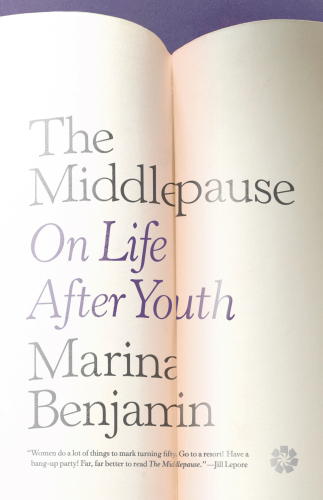
The Middlepause
On Life After Youth
کتاب های مرتبط
- اطلاعات
- نقد و بررسی
- دیدگاه کاربران
نقد و بررسی

Starred review from March 13, 2017
This eloquent and intelligent memoir by Aeon editor Benjamin (Last Days in Babylon) tells of the author’s personal experience with sudden menopause after a hysterectomy, when she was struggling with physical pain and hormonal changes and felt “ambushed” by middle age. She lays bare her distress, feeling she was “fast-tracked” to menopause: “Much of the time I feel mournful, assailed by loss.” Menopause’s relationship to aging is deftly cataloged as Benjamin laments the physical changes in her skin, spine, and vigor, as well as forgetfulness. She notes her positive experience with hormonal replacement therapy, yet is conflicted because of its misogynistic history. Benjamin seeks guidance through diverse content: self-help books and online message boards, scholarly writings by Carl Jung and Erik Erikson, Edith Wharton’s novel Twilight Sleep, and writings of the French novelist Colette. This is a measured and beautifully written critique of menopause and middle age that pre-, mid-, and postmenopausal women will find eminently relatable, and that those who love and care for them will likewise appreciate.

January 1, 2017
Middle age makes the writer feel "ambushed and laid bare."Journalist and memoirist Benjamin (Last Days in Babylon: The History of a Family, the Story of a Nation, 2006, etc.) did not enter menopause gradually, but suddenly after a hysterectomy at the age of 48. The change in her body was immediate: her hair became dull, her skin sagged, her energy diminished; and these changes corresponded to a spiritual and mental flagging. In a memoir notable for its autumnal, rueful tone, the author chronicles her experiences as she approached, and then passed, the age of 50, beset by losses: "of vigor, organs, luster" and "an unquestioning faith in possibility." She disputes feminists who see "fifty as the new forty, and forty the new thirty." For her, 50 means she will be "over the hill. Ahead of me, just as I am able to take command of the view, the incline runs downward." Benjamin's perception of aging has been shaped by physical problems that not all women share--e.g., scoliosis led to a bulging disk in her vertebrae and chronically painful sciatica. She is exquisitely attuned to "an imperceptible dulling of sight or hearing, a barely noticeable decline in the number of neurons firing or in the strength of firing," an "ever-so-gradual slowing" and increasing fatigue. The author has a "knee-jerk distaste" for upbeat popular writings that hail the possibilities and opportunities of middle age. Age, she insists, is not "all in the mind" but unarguably embodied. She does not acknowledge, however, that bodies differ, and the difficulties--"this crisis, this onslaught of unwelcome change, this punch in the face"--that she has experienced may not afflict her contemporaries. For Benjamin, writing this book has been therapeutic: "Interrogating my anxieties, my grief, my sense of loss, my nostalgia, my hauntings, all of this has been a form of exorcism." A thoughtful, morose meditation on aging.
COPYRIGHT(2017) Kirkus Reviews, ALL RIGHTS RESERVED.

























دیدگاه کاربران